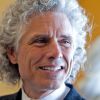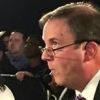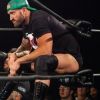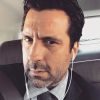15 Learning Books That Experts Rely On to Accelerate Growth
Steven Pinker, Kevin Kelly, and 8 more top minds recommend these transformative Learning Books




What if the way you approach learning is missing crucial pieces? Many assume learning is just about discipline, but the latest insights reveal it’s a complex dance involving the brain, motivation, and environment. With a world that demands rapid adaptation, mastering how you learn has never been more urgent.
Experts like Steven Pinker, cognitive scientist and author, and Kevin Kelly, technology commentator, have turned to a select group of books that unpack the science and art of learning. Pinker praises Uncommon Sense Teaching for elevating education from guesswork to evidence-based practice. Kelly calls Make a "magnificent and rewarding" guide for hands-on skill-building. Their discoveries stem from real challenges and a desire to help others unlock potential efficiently.
While these expert-curated books provide proven frameworks, readers seeking content tailored to their specific background, skill level, and learning goals might consider creating a personalized Learning book that builds on these insights, blending science with your unique context for deeper impact.
Recommended by Steven Pinker
Cognitive scientist and author
“For too long, teaching has been treated as an inscrutable craft, with each practitioner fashioning idiosyncratic practices from intuition and experience. But like all professions, pedagogy can be improved through technology, research, and science. This trio of experts show how to elevate this dark art to an effective and enjoyable practice.” (from Amazon)
by Barbara Oakley PhD, Beth Rogowsky EdD, Terrence J. Sejnowski··You?
by Barbara Oakley PhD, Beth Rogowsky EdD, Terrence J. Sejnowski··You?
Drawing from decades of experience in neuroscience and engineering, Barbara Oakley and her co-authors provide a fresh lens on how brain science can enhance teaching methods. You learn practical strategies to keep students motivated, engage diverse learners, and improve long-term memory retention, with clear examples like techniques for online education and inclusive classrooms. The book benefits educators at any stage, as well as parents eager to support their children's learning effectively. Its chapters unpack cognitive principles behind learning processes, making complex science approachable and immediately relevant to everyday teaching challenges.
Recommended by Jay Wile
Author, Discovering Design science series
“Mrs. Hollenbeck helps parents identify their children’s multiple intelligence strengths and then gives practical suggestions for how each major subject can be adapted to those styles. As the author of many science courses for homeschooling, I really appreciated her discussion of the various ways science can be personalized to meet the needs of each child as well as her approach to lab reports. More importantly, she emphasizes over and over again that each child is a unique masterpiece made by God. Whether you are a new homeschooling parent or a veteran homeschooler, you will benefit from reading 8 Great Smarts for Homeschoolers.” (from Amazon)
by Tina Hollenbeck, Kathy Koch PhD··You?
by Tina Hollenbeck, Kathy Koch PhD··You?
Unlike most homeschooling books that offer generic advice, this guide zeroes in on how children learn differently through eight distinct intelligences identified by co-author Kathy Koch. Tina Hollenbeck, drawing from her extensive homeschooling experience and leadership in the community, connects these "smarts" directly to core subjects like math and science, showing you how to tailor lessons in concrete ways—such as adapting lab reports to fit different learning styles. You gain insights not only on curriculum design but also on nurturing family dynamics by understanding each child’s unique strengths. This book suits parents deeply invested in customizing education, rather than those seeking a one-size-fits-all approach.
This tailored book explores effective learning techniques designed specifically to match your background and learning goals. It examines the science behind how you absorb and retain information, revealing methods that align with your unique cognitive style and interests. By focusing on your specific needs, this guide helps you navigate complex expert content and distills key principles into actionable knowledge. The personalized approach ensures you engage with material relevant to your objectives, enhancing your learning efficiency and mastery. Whether you're aiming to deepen understanding or accelerate skill acquisition, this tailored book covers essential concepts in a way that resonates with your personal journey.
Recommended by David Wees
Math educator and education thought leader
“For teachers hoping to transform their teaching practice, Peter has written a definitive source. Peter’s conversational style makes this work both interesting to read and easy to follow. He describes a rich set of practices that will help mathematics teachers transform, in a positive way, everything about their classroom. Peter turns the daunting challenge into something manageable with advice that is both believable and practical.” (from Amazon)
by Peter Liljedahl··You?
After analyzing years of classroom observations and teacher struggles, Peter Liljedahl developed a clear framework for transforming math education through 14 specific teaching practices. You’ll learn how to create a classroom environment that naturally encourages deep thinking and collaboration, moving beyond rote procedures to genuine mathematical engagement. The book offers detailed descriptions and examples of these practices, including how to set up tasks and structure interactions to foster student thinking. If you teach math or design curriculum for K-12, this book provides concrete, research-based strategies to rethink how learning happens in your classroom.
Recommended by Kevin Kelly
English commentary specialist and author
“This is the book I'd use next time I want to learn a new language. It employs an intelligent mix of the latest methods for learning a language on your own using the web, apps, and voice training tips in an accelerated time frame.” (from Amazon)
by Gabriel Wyner··You?
by Gabriel Wyner··You?
Gabriel Wyner, a linguist who struggled through traditional language classes, crafted this method to transform how you learn languages. You’ll discover how to retrain your ear and tongue using techniques borrowed from opera singers, followed by memorization strategies that rely on connecting sounds to images rather than translations. For example, the book dives into pronunciation exercises in early chapters and introduces spaced repetition to cement vocabulary efficiently. If you’ve ever felt stuck or frustrated by language apps or classrooms, this book offers an alternative approach that emphasizes your brain’s natural learning processes, making it a strong fit for self-motivated learners aiming for lasting fluency.
Recommended by Scientific American Mind
“Dehaene is a maestro of the unconscious.” (from Amazon)
by Stanislas Dehaene··You?
by Stanislas Dehaene··You?
Unlike most learning books that focus on superficial tips, Stanislas Dehaene draws on decades of neuroscience to explain how our brains actually acquire and process knowledge. As director of a cognitive neuroimaging unit and professor at the Collège de France, he reveals the biological foundations of learning, detailing how brain circuits adapt and how this impacts education and daily life. For example, he explores the brain's 'visual word form area' to explain reading acquisition, blending cognitive psychology with cutting-edge brain imaging. If you want to understand the science behind learning mechanisms and improve your educational approach, this book offers solid insights without hype.
by TailoredRead AI·
This tailored book explores effective, step-by-step actions designed to boost your learning speed and retention. It covers a personalized pathway through proven techniques, cognitive science, and practical exercises that match your background and specific goals. By focusing on your unique interests, it reveals how to accelerate skill acquisition and deepen memory retention in a way that fits your learning style. The content draws from a broad synthesis of expert knowledge, making complex concepts accessible and relevant to you. Whether you want to master new skills rapidly or improve your study habits, this book provides a focused learning experience tailored just for your needs.
Recommended by Steven Pinker
Cognitive psychologist and author
“One of psychology” (from Amazon)
Paul Penn's decades of experience as a psychology lecturer and Higher Education Psychology Teacher of the Year inform this guide to mastering essential study skills. You’ll learn practical insights into time management, academic reading, note-taking, and teamwork, all grounded in psychological research explaining common student errors. For example, the book breaks down how to avoid ineffective study habits by applying cognitive science principles, making it especially useful for undergraduates starting their degrees. Its engaging tone, with cultural references and humor, makes complex concepts accessible, though those seeking advanced or graduate-level strategies might find it basic. This is a straightforward, psychologically informed manual for anyone aiming to improve their academic performance.
Recommended by Kirk Borne
Principal Data Scientist, PhD Astrophysicist
“Another excellent book by Jo Boaler >> "Mathematical Mindsets: Unleashing Students' Potential through Creative Math, Inspiring Messages and Innovative Teaching" #Mathematics #DataLiteracy #DataFluency Reminds me of my interview:” (from X)
by Jo Boaler··You?
Drawing from her extensive experience as a Stanford mathematics education professor, Jo Boaler challenges the traditional notion that math ability is innate. She presents a research-backed framework that transforms math anxiety into confidence by cultivating a growth mindset. The book offers educators and parents practical methods to foster creativity and resilience in students, including equitable classroom grouping and 21st-century math initiatives. Chapters reveal how to reshape students' beliefs about math through inspiring messages and innovative teaching strategies. This approach suits educators aiming to unlock every child's potential, as well as parents eager to support their children's mathematical journey.
Recommended by James Altucher
Founder & CEO Reset Inc
K. Anders Ericsson, a psychology professor with decades studying expert performance, challenges the myth of innate talent in this book. Through detailed research on musicians, athletes, and chess players, you learn how deliberate, focused practice—not just time spent—shapes extraordinary skill. The book dives into concepts like deliberate practice and mental representations, illustrating with examples such as Mozart’s training and the chess-playing Polgar sisters. If you're aiming to understand how to truly develop your abilities beyond natural gifts, this book offers a clear path. However, it’s less about quick hacks and more about long-term commitment to skill mastery.
Recommended by Jason Fried
Co-Founder and President of Basecamp
by Daniel Coyle··You?
by Daniel Coyle··You?
Daniel Coyle, a journalist with extensive research trips to global talent hubs, explores the surprising science behind skill development. You’ll learn how “deep practice” rewires your brain faster than conventional drills, while the concept of “ignition” reveals how primal motivations spark lasting commitment. The book also breaks down the traits of master coaches who drive excellence. Whether you're nurturing young talent or pushing your own limits, it offers concrete insights into growing ability rather than relying on innate gifts. It’s especially useful if you want to understand the neurological basis of talent and how to cultivate it deliberately.
Recommended by Kevin Kelly
English commentary, tech author
“A magnificent and rewarding book. ... Every step of this structured instruction is expertly illustrated with photos and crisp diagrams. . . . This really is the best way to learn.” (from Amazon)
by Charles Platt··You?
What started as Charles Platt's youthful fascination with building a telephone answering machine evolved into a hands-on guide that demystifies electronics for enthusiasts at any level. You’ll gain a clear understanding of core components like resistors, capacitors, and transistors, along with practical advice on essential tools and supplies. Each chapter takes you through experiments that reveal how circuits work, making abstract concepts tangible by discovery rather than rote instruction. If you want to build a solid foundation in electronics with a book that encourages learning by doing, this primer suits you well, especially if you’re drawn to tinkering and creating rather than just theory.
Recommended by Bob Kerrey
Former U.S. Senator; President Emeritus, The New School
“Every parent and student who were already online learners or who have been pushed by the pandemic into the online world should read this book. Professor Kosslyn has dedicated his academic life to the study of how human beings learn and has developed extremely valuable lessons in how to thrive in a virtual classroom.” (from Amazon)
by Stephen M. Kosslyn··You?
by Stephen M. Kosslyn··You?
Drawing from decades of experience in psychology and education, Stephen M. Kosslyn developed principles that reshape how you approach online courses. You’ll explore five scientifically grounded concepts—deep processing, chunking, building associations, dual coding, and deliberate practice—that increase student engagement and retention. The book offers concrete exercises and frameworks to transform both synchronous and asynchronous learning environments, making abstract content stick and encouraging active participation. Whether you design courses or teach online, you’ll find tools to create tailored, interactive lessons that move beyond passive viewing. This isn’t just theory; the chapters provide ways to immediately apply these principles, improving learning outcomes in practical settings.
Recommended by Mike Bennett
Motivational speaker and pro wrestler
“Just finished the book Limitless by @jimkwik. Absolute brilliant book. I’ve never had a book that actively changed me and my mindset as I was reading it. I cannot recommend this book enough.” (from X)
by Jim Kwik··You?
Jim Kwik challenges the conventional wisdom that traditional learning methods suffice in today’s fast-paced world by offering a fresh approach grounded in neuroscience and practical brain training. Drawing on his personal experience overcoming childhood learning difficulties and three decades coaching elite performers, he breaks down mindset shifts, motivation drivers, and learning techniques that help you triple your reading speed, enhance memory, and master new skills rapidly. The expanded edition introduces insights on harnessing AI, nootropics, and adapting to modern work environments, making it a solid pick if you're eager to upgrade your cognitive abilities systematically. However, if you’re looking for purely academic theory, this book leans more toward applied mental performance enhancement.
Recommended by George Couros
Educator, author, and speaker
“So excited for the release of "UDL and Blended Learning: Thriving in Flexible Learning Landscapes" by Katie Novak & Catlin Tucker! The book is full of great ideas & stories by these two incredible leaders!” (from X)
by Katie Novak, Catlin Tucker··You?
by Katie Novak, Catlin Tucker··You?
Katie Novak, an education consultant with over 20 years of hands-on experience and a doctorate in curriculum and teaching, collaborates with educator Catlin Tucker to address the evolving challenges of modern classrooms. The book delves into combining Universal Design for Learning (UDL) principles with blended learning models, offering you practical strategies to tailor education for diverse learners regardless of setting or pace. You’ll encounter chapters focusing on building inclusive communities, enhancing accessibility, and fostering equity, all grounded in real classroom applications. If you're an educator seeking to navigate flexible learning environments with intentionality and care, this book provides clear frameworks to meet your students where they are without overwhelming complexity.
Recommended by Michael Shaughnessy
Past President, National Council of Teachers of Mathematics
“A Mind for Numbers is an excellent book about how to approach mathematics, science, or any realm where problem solving plays a prominent role.” (from Amazon)
by Barbara Oakley PhD··You?
by Barbara Oakley PhD··You?
Barbara Oakley's journey from struggling student to engineering professor shapes this guide on mastering math and science. You learn to harness both focused and relaxed modes of thinking, discovering that creativity plays a vital role in solving problems, such as exploring multiple proofs of the Pythagorean Theorem. The book breaks down misconceptions about learning these subjects and offers tools that extend beyond STEM to any challenging topic. If you've ever felt stuck or overwhelmed by technical material, this book offers a fresh perspective on how to rewire your approach.
by Patrick Spain··You?
When Patrick Spain realized how many struggle to find time and effective methods for learning Spanish, he crafted this book to break down barriers with accessible, bite-sized lessons. You’ll gain practical skills like essential grammar, over 2,000 common words, and conversational phrases, reinforced through 19 short stories paired with exercises to deepen retention. The book suits beginners and travelers eager to communicate confidently, as well as professionals seeking to expand language skills without costly courses. Chapters focus on real-world usage, making it easy to apply what you learn immediately, especially with the added audio and flashcard bonuses.
Get Your Personal Learning Strategy in 10 Minutes ✨
Stop following generic advice. Get targeted learning methods tailored to you without reading dozens of books.
Trusted by thousands of learning enthusiasts and educators worldwide
Conclusion
This collection of 15 Learning books converges on a few key themes: understanding the brain’s role in learning, applying deliberate and active practice, and embracing personalized approaches. If you’re new to learning strategies, starting with Uncommon Sense Teaching and How We Learn provides a solid foundation in brain science. Those looking to enhance specific skills should pair Peak with The Talent Code for practical practice methods.
Educators and parents will find Building Thinking Classrooms and 8 Great Smarts for Homeschoolers invaluable for transforming learning environments tailored to individual needs. For language learners, Fluent Forever and Learn Spanish offer scientifically informed paths to fluency.
Alternatively, you can create a personalized Learning book to bridge the gap between general principles and your specific situation. These books can help you accelerate your learning journey and unlock greater potential faster than you might expect.
Frequently Asked Questions
I'm overwhelmed by choice – which book should I start with?
Start with Uncommon Sense Teaching or How We Learn. Both offer foundational insights into brain science and practical strategies that apply across subjects, setting a strong base for all learners.
Are these books suitable for beginners in learning strategies?
Yes, many like The Psychology of Effective Studying and A Mind for Numbers are designed for newcomers, offering accessible advice without requiring prior expertise.
Do I need to read all of these books, or can I pick just one?
You can pick based on your goals—focus on books that align with your interests, whether it’s language learning, math, or teaching methods. Each book stands strong individually.
Which books offer the most actionable advice I can use right away?
Active Learning Online and Limitless Expanded Edition provide practical exercises and techniques you can implement immediately to boost engagement and brain performance.
Are there any conflicting ideas among these books?
While approaches vary, such as emphasis on neuroscience or hands-on practice, they complement rather than contradict each other, offering a richer understanding when combined.
Can I get tailored learning advice instead of general books?
Absolutely. While these expert books provide solid frameworks, you can also create a personalized Learning book tailored to your unique background and goals to maximize relevance and impact.
📚 Love this book list?
Help fellow book lovers discover great books, share this curated list with others!
Related Articles You May Like
Explore more curated book recommendations














